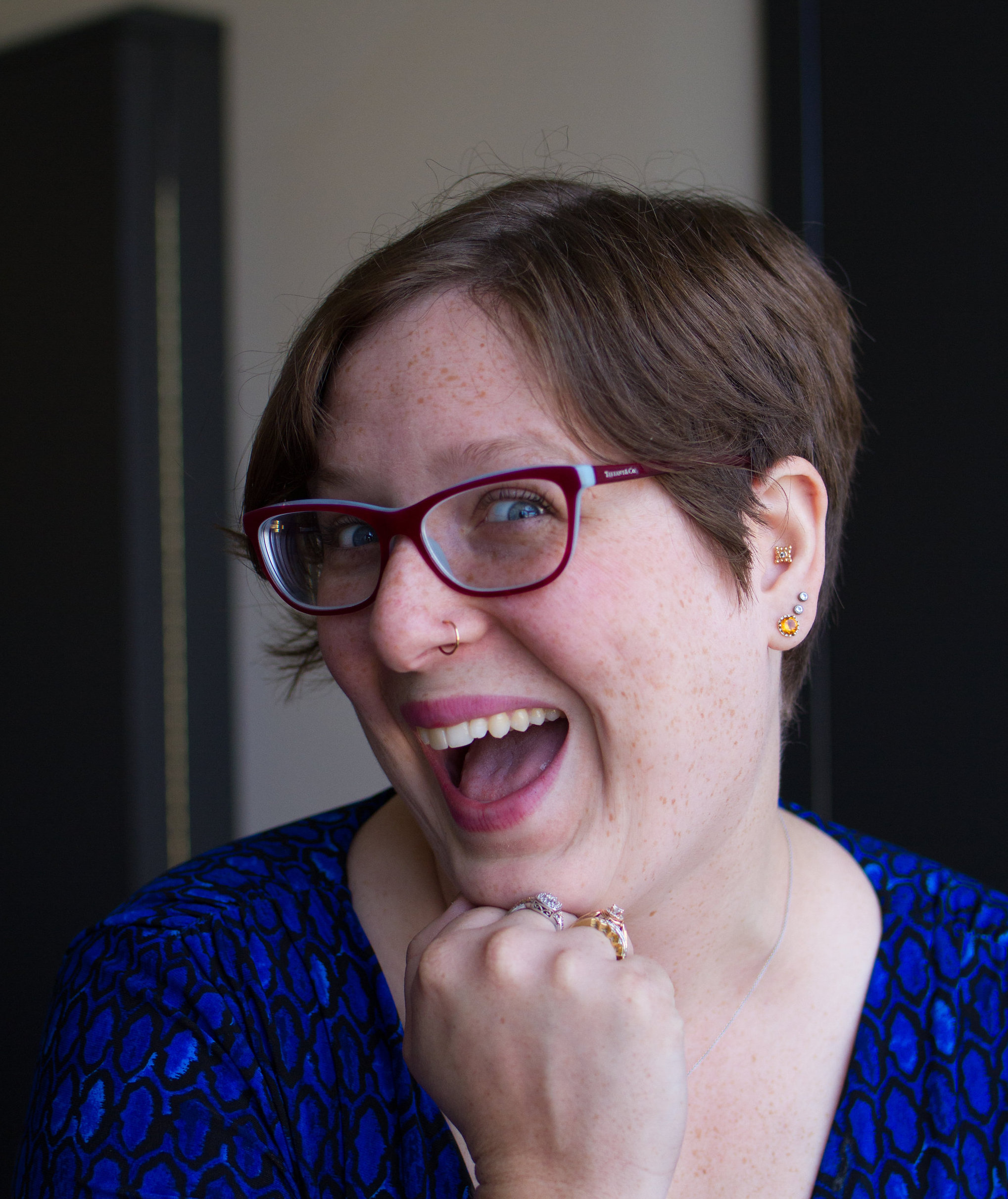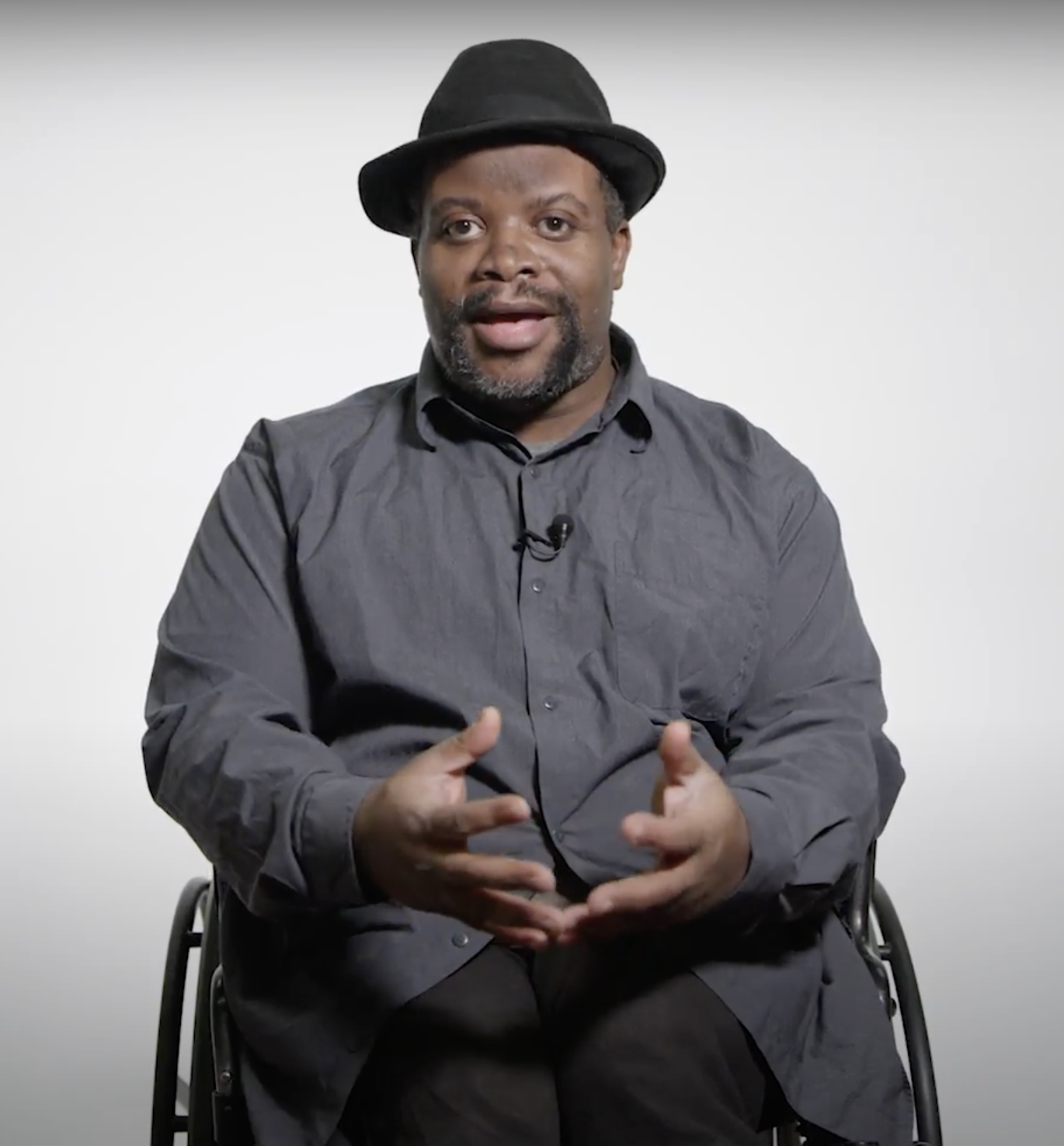JENNIFER SZWEDA JORDAN (00:02):
Does faith inform how people see disability, especially if it's their own disability? Today we go deep, exploring what shapes motivations and worldviews. This is ADA at 30: Accessibility in Pittsburgh. I'm Jennifer Szweda Jordan of Unabridged Press. This podcast, as well as feature reporting and video work is produced in collaboration with PublicSource. It's all at adapittsburgh.com. Now, in the last episode, we talked with religious leaders and the faithful, about how they include people with disabilities in their communities, and how they sometimes don't. Today, three people with disabilities talk about very different spiritual experiences.
Was I a mean raccoon? Hinduism, karma and disability
PUNEET KUMAR (00:53):
I didn't know what muscular dystrophy was until I was formally diagnosed seven years ago. I was crushed, totally devastated. I'm a huge sports fan. I grew up idolizing Kobe Bryant, Troy Polamalu, Randy Moss. My name is Puneet Kumar. There's seven main forms of muscular dystrophy. Mine's called limb-girdle muscular dystrophy, so I can walk short distances and on level surfaces. But the main reason I have to use a wheelchair is because going up and downstairs is extremely difficult, and I trip and fall easily. And I used to be able to do 50 pushups not stopping. Now, I can't even do one on my knees. I just totally completely felt like my life was robbed from me, totally stolen from me. I figured that this was worse than death. I still sort of do — you know, I'm a Hindu, I believe in Karma — still sort of do believe it's being punished for things I did in this life or previous ones, but I'm gradually working in accepting these things.
PUNEET KUMAR (01:54):
It took 8.4 million life cycles to become human. So in previous lives, all of us were amoebas and slugs and squirrels and whatever else. So you fulfill your karmic cycle and move up or down as far as I understand. So if you're a good human and you fulfill your karmic duty, then you move on to be one with the gods after this, I guess sort of like heaven or whatever. And if you're not, then you keep coming back in the material world in some form, until you learn your sort of lessons. I thought maybe I was a sadistic soldier at Auschwitz, or maybe I was a really mean raccoon or I don't know. I think all the time about what did I do, what-what, why? These things don't make sense in our world, but if you think of these things in terms of karmic law, it makes a little bit more sense, or it's easier to process.
Are you there, God? It’s me, Rachel

Rachel Kallem-Whitman only believed in God when having a manic episode. Now she places her faith in people, and a good medication regimen. (Courtesy photo)
RACHEL KALLEM-WHITMAN (03:03):
My name is Rachel Kallem-Whitman. I live with bipolar disorder. I am a secular Jew. I identify culturally as being Jew-ish, but otherwise live in an atheist space. My parents wanted me to have the Sunday School experience that a lot of people talk about, going and learning these lessons. So we would go to this very humanistic reconstructive, one of the other reform communities, and the Sunday School equivalent. Which I thought was awesome in that we didn't really read scriptures. This really wasn't about God at all, it was practical skills. So we learned about things like, "What are the merits of recycling?" And so, for me, it fused together this idea that when you come to spaces for religion, it doesn't necessarily have to be about a higher power, it's about what you do.
RACHEL KALLEM-WHITMAN (03:03):
My name is Rachel Kallem-Whitman. I live with bipolar disorder. I am a secular Jew. I identify culturally as being Jew-ish, but otherwise live in an atheist space. My parents wanted me to have the Sunday School experience that a lot of people talk about, going and learning these lessons. So we would go to this very humanistic reconstructive, one of the other reform communities, and the Sunday School equivalent. Which I thought was awesome in that we didn't really read scriptures. This really wasn't about God at all, it was practical skills. So we learned about things like, "What are the merits of recycling?" And so, for me, it fused together this idea that when you come to spaces for religion, it doesn't necessarily have to be about a higher power, it's about what you do.
RACHEL KALLEM-WHITMAN (04:11):
To be honest, the only time that I would have a relationship with a higher power God is when I was symptomatic. So this is when I was having the psychotic episode, which was this pull from reality, when reality unravels for you. When I would be in these states, because bipolar, you go through these mood cycles, they're more powerful than moods, but it's this idea of this shift in your relationship to sanity. And so when I was symptomatic and actively struggling, I would pray so hard. And I would believe in God, and I would believe in Jesus. Which again, also for Jewish atheist is an odd turn. I also believed in Princess Diana as my guardian angel. So it wasn't all religious based. But what happened then, is when I would come to the other side and I would be treated and taken care of, and feel back into myself, I feel like God doesn't exist, because the only time that I hear God and God hears me, theoretically air quotes, is when I'm sick.
RACHEL KALLEM-WHITMAN (05:23):
Starting at 15, when I first started experiencing these symptoms, that was it for me. I was just like, when I am in this space, God makes sense. But when I am healthy, there is no God to be found. I really, I believe more in people, I have faith in people, granted during this time with COVID and looking at the challenges, Black Lives Matter, we're trying to make things more safe. Pushing back on state-sanctioned violence and police brutality, trying to find an anchor there of action and activism, that gives me hope for the future. And I think religion does that for a lot of people, it can center them and give them faith as they move forward. So I found that just in a different way.
Where are the Christian leaders with disabilities?

David Hale worships at a Christian church in Pittsburgh, where he says people with disabilities are welcome, but not necessarily in leadership roles. (Photo by Alex Collinger)
DAVID HALE (06:18):
I love people and I love stories. And I want to build community and I want to teach people. I want to use stories to enrich people's lives. That's my mission to create stories for my collection, and use them as material to enrich people's lives through storytelling. One of them is my personal story of being born with a spina bifida. My name is David Hale, and when I was four, my mother told me that there was a purpose for my life. And that really helped me to feel like there was something for me here in this world to do, and everything. I love doing percussion and drums, the bongo. And I like to take my drumsticks and make beats on different things like boxes, and do a lot of creative things with that. It's usually just that, I don't sing that well or anything.
DAVID HALE (06:18):
I love people and I love stories. And I want to build community and I want to teach people. I want to use stories to enrich people's lives. That's my mission to create stories for my collection, and use them as material to enrich people's lives through storytelling. One of them is my personal story of being born with a spina bifida. My name is David Hale, and when I was four, my mother told me that there was a purpose for my life. And that really helped me to feel like there was something for me here in this world to do, and everything. I love doing percussion and drums, the bongo. And I like to take my drumsticks and make beats on different things like boxes, and do a lot of creative things with that. It's usually just that, I don't sing that well or anything.
DAVID HALE (07:25):
And that's the only instrument I play. And it's easy for a person with a disability to ... We're not supposed to isolate ourselves, we're supposed to be out and about with people, but it's tempting not to isolate ourselves when people seemingly don't care about us, or don't interact with us, or don't include us. And it's easy to be like, forget this, I'm just going to be by myself because that's easier. But I'm determined not to do that, because that's not good for me, and not good for anybody. I do want to get married when I'm a single guy. I'm not really dating anybody right now, but I do have a deep friendship with somebody.
DAVID HALE (08:09):
And it's really nice to have that. I love going to church and everything. And, of course, I'm a Christian and everything. And I think there needs to be change in churches too. More inclusion with people with disabilities and their families. There's not a lot of wheelchairs in churches. And it's not because churches are saying, "Stay away and get out." They don't really have any things for ... Even service too. Maybe they won't let people with disabilities serve. They want to serve people with disabilities, but not let them serve in ministry. And that's one of the things I would like to change.
JENNIFER SZWEDA JORDAN (09:02):
Thanks to Puneet Kumar, Rachel Kallem-Whitman and David Hale for sharing their stories. Now, you can put a face to the name of each of today's speakers by heading over to adapittsburgh.com. In the next episode of this podcast, two sisters with different disabilities share their stories of walking together. And if you liked today's show, there are some similar themes in the next episode.
ALANA GIBBS (09:29):
I prayed a lot. I'm just like, why am I here? What do you want from me?
JENNIFER SZWEDA JORDAN (09:37):
That's next time on ADA at 30: Accessibility in Pittsburgh. I'm Jennifer Szweda-Jordan of Unabridged Press. This work is produced in collaboration with PublicSource and supported by the FISA Foundation. Kara Holsopple edited and designed sound on this episode. Thanks for listening.